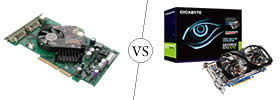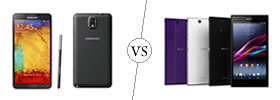Difference between Native and Hybrid App
Key difference: A native app is an application that is specifically developed for a mobile system. The native apps are developed using the platform SDK, tools and languages for the specific platform. A hybrid app, on the other app, is an app that is developed with a web language such as HTML 5, CSS and JavaScript. These applications are then run in a native container, which allows them on run on any mobile system.

An app, short for application, is a program or a group of programs that can be used to serve a specific purpose. While, all the software we use are technically applications, the term ‘app’ is commonly used in context to the applications used on mobile systems, such as Android, iOS, Windows Mobile, Blackberry, etc.
There are two main types of applications: a native app and a hybrid app. The application from the user point of view may be identical; however the actual differences between the apps are only in the systems that they are developed in.
A native app is an application that is specifically developed for a mobile system. For example: an app that is developed for iOS. This app would not be properly compatible with other mobile systems such as Android. In order, for the application to work on Android, the application must be redeveloped under Android’s framework.
The native apps are developed using the platform SDK, tools and languages for the specific platform. For Android, the native apps must be developed using Eclipse or Java. iOS uses xCode and Objective-C to develop its apps, while Windows Phone uses Visual Studio and C#.
A hybrid app, on the other app, is an app that is developed with a web language such as HTML 5, CSS and JavaScript. These applications are then run in a native container, which allows them on run on any mobile system. For example: in order to run on Android, the app can be run in an Android native container, whereas the app can be moved to an iOS native container in order to make it work on iOS.
 Hybrid app’s advantage is that it saves time and energy. The app needs to be developed only once, and then the app can be ported to any system. Whereas, a native app must be developed for each system individually. However, a native app has a better user interface as it has been developed specifically for that system. It also has a better compatibility, with reduced chances of some part of the app failing.
Hybrid app’s advantage is that it saves time and energy. The app needs to be developed only once, and then the app can be ported to any system. Whereas, a native app must be developed for each system individually. However, a native app has a better user interface as it has been developed specifically for that system. It also has a better compatibility, with reduced chances of some part of the app failing.
Both, native apps and hybrid apps are downloaded from the platform’s app store and stored and run on the device. However, the hybrid apps leverage the device’s browser engine to render the HTML and process the JavaScript locally. To develop the native apps for different platforms, the developer needs to know various different languages, whereas to develop a hybrid app, he needs to know only one.
Each of the different types of app has their own benefits. Hence, some apps are better developed as native apps, especially games and other apps that require better and faster performance, graphics, etc. However, for other apps, hybrid may work better such as for apps that need to show webpages, maps, etc.
Comparison between Native and Hybrid App:
|
|
Native App |
Hybrid App |
|
Description |
An app that is developed specifically for a platform using the platform’s SDK, tools and languages. |
A single app coded using a web language which can be ported to any platform under a native container. |
|
Run of the |
Device |
Device |
|
Developing language |
Developed using the platform SDK, tools and languages for the specific platform. For Android, the native apps must be developed using Eclipse or Java. iOS uses xCode and Objective-C to develop its apps, while Windows Phone uses Visual Studio and C#. |
Developed with a web language such as HTML 5, CSS and JavaScript. |
|
Complexity |
More complex to code |
Less complex to code |
|
User experience |
Better user experience |
Less user experience than native apps |
|
Performance |
Faster and better performance |
Slower performance than native apps |
|
Graphics |
Better graphics |
Lesser graphics than native apps |
|
Portability |
Harder to port to other systems |
Easier to port to other systems |
|
Integration |
The camera, address book, geolocation, and other features native to the device can be seamlessly integrated into native apps. |
Some device features may be harder to integrate into hybrid apps. |
|
Investment |
Need more investment because they are written with more complex languages, designs and structures. |
Need less investment |
Image Courtesy: justtotaltech.co.uk, ideatoappster.com









Add new comment